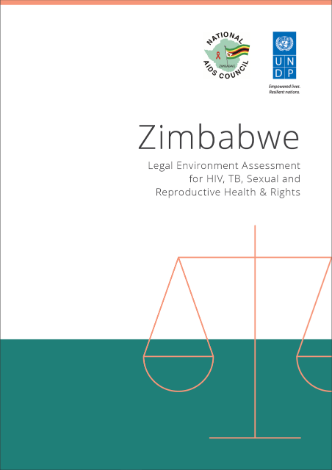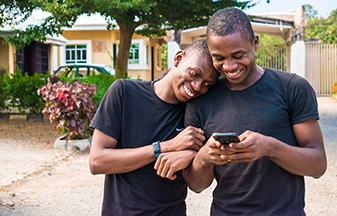Yana Panfilova is Ukrainian and was born with HIV. When she was 16 years old, she created Teenergizer, a civil society organization to support adolescents and young people living with HIV in Ukraine. Since 2016, Teenergizer has been working internationally, promoting the rights of teenagers and young people in Ukraine and in seven cities in five countries across eastern Europe and central Asia. In 2019, the organization began providing peer counseling and psychological support to adolescents, and has trained more than 120 online consultants–psychologists to support young people across the region. In June 2021, she spoke at the opening of the United Nations General Assembly High-Level Meeting on AIDS. When the war in Ukraine started, she left Kyiv, Ukraine, with her family and made her way to Berlin, Germany, from where she is continuing her work to support young people living with HIV in Ukraine.
Why and how did you leave Kyiv?
Within days of the start of the Russian invasion I understood that we needed to make a life-changing decision—people with machine guns were patrolling the streets. I had to convince my mother that we needed to leave, because she was reluctant to go. We packed up our lives in less than an hour, drove to Kyiv railway station, left our car there and boarded the first train that we could find. There were so many people, mothers, children, and fathers and brothers seeing off their families, and many people were panicking. We had to stand on the train for 12 hours, with our suitcases and our cat. When our grandmother caught up with us at our first stop, we travelled together from Ukraine, along with her dog, crossed the border to Poland and went on to Berlin. The entire trip took seven days. It was the longest and most challenging trip of my life—I didn’t want to leave my beautiful Kyiv not knowing where we would end up. Now we are here in Berlin, refugees, safe and secure, but still in disbelief about what we have been through and distraught about what is happening to the people of Ukraine. But at least we are safe and together—my mother, my grandmother and her dog, and me and my cat. I was lucky that I brought enough antiretroviral therapy to last about two months.
Are you settled in Berlin?
I’m still in limbo, like millions of other Ukrainian women and children who have made this journey. But everyone we have met at every step of this journey has been so kind and welcoming. We are now clarifying the legal aspects of how to stay here in Berlin for the next few weeks and how we can access local medical and social services. Even how we can rent an apartment is still not yet clear. We made an appointment online with the municipality of Berlin to clarify the details with them. They are working to provide me with medical insurance so I can get access to medical care and uninterrupted access to HIV treatment.
I am also in contact with Berliner Aids-Hilfe, one of the oldest nongovernmental HIV organizations in Europe; after the war in the former Yugoslavia, they have a lot of experience in working with migrants living with HIV. They have been amazing, ready to help with access to antiretroviral therapy as well as the other needs that Ukrainians living with HIV will have here in Berlin.
So, you're more or less safe now. How are the other young people from Teenergizer doing?
Most of our teenagers living with HIV have already left Ukraine and now they are in Estonia, Germany, Lithuania, Poland and other countries. We are in contact with most of them every day. Some of our activists chose to stay with their parents in Kyiv and other cities that are under attack. We are now clarifying the latest information and trying to monitor where everyone is, and if they are safe. But this is not a quick or easy process. Everyone is now trying just to survive and stay in contact. Our staff, peer educators and clients are now scattered across different countries, each with different laws, treatment regimens and access to the Internet. Those still in Kyiv are connected with our partners, who are still providing access to antiretroviral therapy and emergency humanitarian assistance. Most of our consultants–psychologists are still providing online assistance to those in most in need.
What are the issues you are dealing with to stay in Berlin?
The people here in Berlin and all the Germans we have met since we arrived have been incredibly kind and welcoming. We are very grateful. I know all cities across Europe are struggling to support millions of Ukrainians, but I don’t think we could have found a safer and more tolerant place to stay than Berlin.
Of course, our most urgent questions are of a legal nature related to temporary status here and, second, questions about access to medical care and antiretroviral therapy. Third is housing. I never thought housing would be so important or so nerve-wracking. Local volunteers are helping around the clock, and millions of Europeans have opened up their homes. But for the hundreds of thousands of Ukrainians still living in warehouses, shelters and other temporary accommodation, the lack of a place you can call a temporary home can crush your spirit.
What do you think is most important to keep doing now?
No matter what happens with the war, we have to continue supporting each other in the Teenergizer family. In Ukraine, we spent years fighting so that young people living with HIV could have our health and rights protected. And now it feels like so many of our hard-won gains have disappeared overnight. In the middle of this crisis, we have to keep standing up for our rights and focus on the urgent needs facing the most vulnerable members of our Teenergizer network. I am so lucky to be alive and here in the safety of Germany. But many of our friends are still in Kyiv and in other cities across Ukraine, fighting for their lives and our country. Some of them have no way out and others don’t want to leave their homes and their families. Now, more than ever, they need our support and reassurance that we will continue to do everything we can to support them when they need it most.
First, we need to help them to navigate this new crisis and continue life-saving services—HIV treatment for those who urgently need it, and prevention and testing services. Second, during this crisis, we must continue to provide young people with mental health services, especially peer counselling. In our region, HIV is more of a social problem than a health problem. Today, young Ukrainians living with HIV are facing the triple crises of their health, their safety and acute stress and depression caused by the war. Psychologists call it PTSD. This trauma is continuing for an entire generation of Ukrainians. Young people who need professional psychological support will start using drugs and some of them will contract HIV, but they will be too scared or ashamed to ask for help in the current crisis. The same applies to adolescent girls and women who cannot exercise their reproductive and sexual rights, or young people who do not use a condom during sex, or millions of Ukrainian women who are at risk of exploitation when they are alone in Europe, away from their families and friends. Today, thousands of adolescents still in Ukraine who are living with HIV are afraid to reveal their status. Many still do not know how to protect themselves from HIV and from the violence of war. Millions of Ukrainian youth are left alone to cope with their anxieties and fears, and an entire generation will be dealing with post-traumatic disorders—this needs urgent attention. I am convinced that if we provide even basic counselling and support now, young people facing multiple crises will be better able to cope with their problems for years to come.
And also no matter what, we have to push politicians to listen to young people and allow them to influence the decision-making process about their own health and future. The voices of young people, especially young women, should be heard to stop the war and rebuild Ukraine.
How do you see the future of Teenergizer now?
Today, me, my family and my country are facing the greatest crisis of our lives. So if I am not sure about tomorrow, it is difficult to see what the future holds. Over the years, we built a real family, teams of young Teenergizer leaders in different cities in eastern Europe and central Asia—in Kazakhstan, Kyrgyzstan, Tajikistan, Ukraine, even in Russia. But now we are divided. After the Second World War, Winston Churchill said that there would be a wall. And I think that a new wall is appearing now.
What would you say today if you were again on the podium of the United Nations General Assembly?
This is a war between the old world and the new world.
We are young people who want to live in a new world, where there are no wars, where pandemics such as HIV, tuberculosis and COVID-19 are ended, where poverty and climate change are solved. In this new world, all people, no matter who they are or who they love, whatever language they speak or what passport they hold, can enjoy freedom and live their life with dignity, and travel and move across open borders, between peaceful countries. We learned how important and precious this was in recent years when Ukrainians could travel. We could see how peace-loving people lived in other parts of the world, and it made us appreciate the beauty and freedom we have in Ukraine. Today, more than ever, we only understand what we want to rebuild in our own country when we compare it to the values we find in other countries.
And it is this old world that is financing and sustaining this war. This is a road to nowhere.
With the billions spent on this senseless war, the world could find a cure for HIV, end poverty and solve other humanitarian crises.
The new world is about development, not destruction. It is about being able to improve yourself, improve the quality of your life and really support others to do the same.
Everything has an end. And the war will eventually end. What will you do on the first day after the end of the war?
I'll start to read Leo Tolstoy’s book War and peace.





